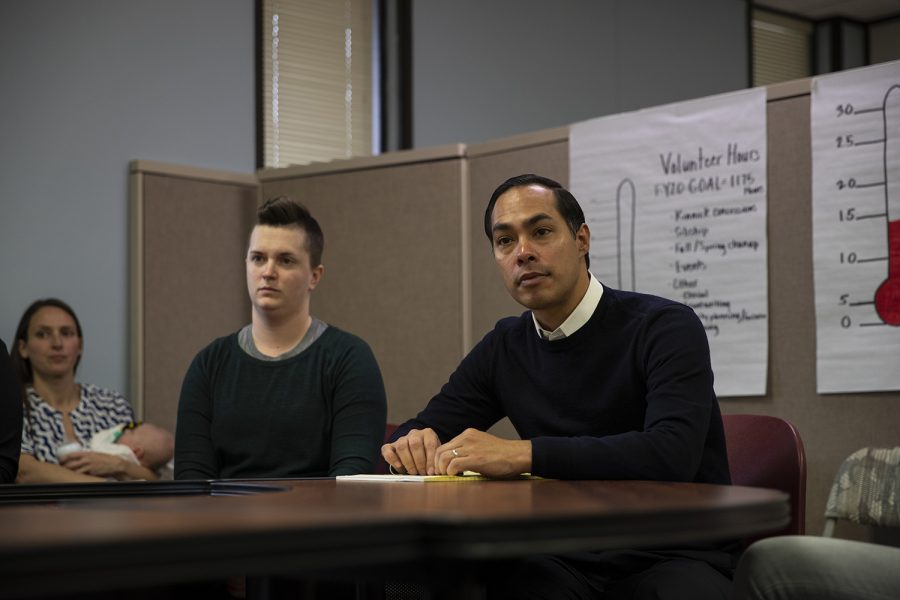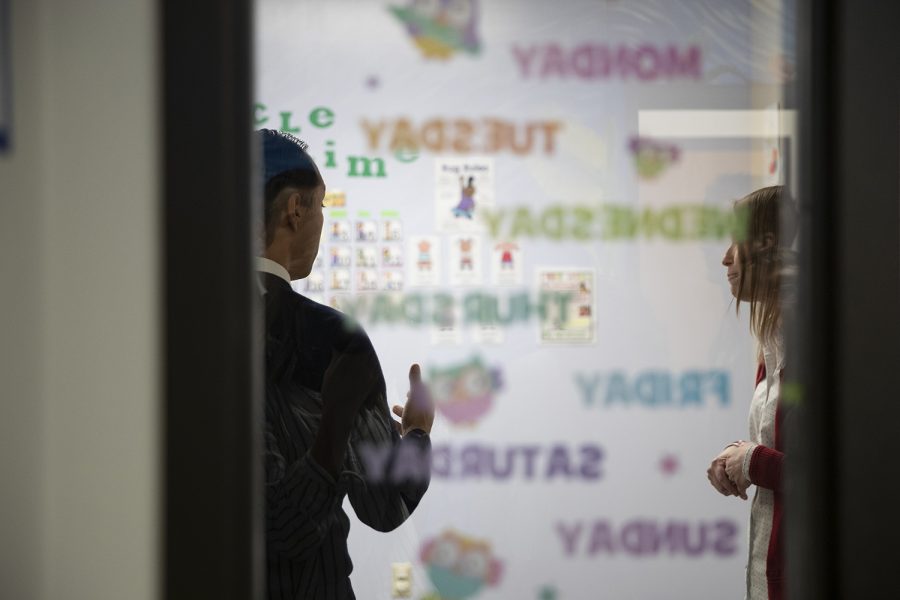Julián Castro says he plans to remain in presidential race if he fails to qualify for November debate
In a visit to the Arc of Southeast Iowa in Iowa City, presidential hopeful Julián Castro said he doesn’t plan to drop his bid if he doesn’t meet Wednesday’s deadline to make the November debate stage.
Former U.S. Secretary of Housing and Urban Development and 2020 Democratic candidate Julián Castro listens to parents and board members at The Arc of Southeast Iowa on Sunday, Nov. 10, 2019. Attendees brought up education, funding, privatization of medical care, minimum wage, and other factors that play into the needs of The Arc and the families they serve. (Jenna Galligan/ The Daily Iowan)
November 10, 2019
Presidential hopeful Julián Castro plans to continue in the presidential race if he doesn’t make the November debate stage, he said in an interview with The Daily Iowan on Sunday.
Castro, the former secretary of housing and urban development, has until Nov. 13 yet to qualify for the Nov. 20 debate. To qualify, candidates need at least 165,000 individual donors and 3 percent support in four approved national polls or 5 percent in three early-state polls.
Castro met the donor threshold but still lags behind in polls, failing to meet the support requirements in any DNC-approved polls.
Nine Democratic candidates have met those requirements and will be on the stage in November. Rep. Tulsi Gabbard, D-Hawaii, and Sen. Amy Klobuchar, D-Minn, were the most recent candidates to qualify for the debate, meeting the requirements in an Iowa poll conducted by Quinnipiac University on Nov. 6.
“We’re going to keep working hard,” Castro said in the interview. “There’s one more debate in December before the Iowa caucus. My intention right now is to continue to work hard toward getting on that debate stage.”
The comments contradict previous forecasts from Castro, who wrote in an email to supporters on Sept. 26 that failing to qualify for the November debate would be “the end of my campaign.”
Castro said with movement in national polls and a potential bid from former New York City Mayor Michael Bloomberg, the race is more unpredictable than it has been in a while.
“I believe that there’s still a lot of people that haven’t made up their mind and people that can change their mind,” he said. “So right now my intention is to continue to go.”
Castro’s remarks were made during a visit to the Arc of Southeast Iowa, an association that provides care and advocacy for people with intellectual and developmental disabilities. Castro spoke with about ten employees, board members, and community members about the problems facing families with children who need care.
Chelsey Markle, the executive director of the Arc of Southeast Iowa, said finding quality caregivers is one of the largest challenges affecting the organization. She said decreased state funding has prevented them from offering competitive wages.
“I think it’s exciting to have a little bit more conversation happening around and in this realm,” she said. “Specifically because both at a local, state, and national level, there’s some real concerns developing with caregivers and having enough caregivers to go around.”
Castro said he would be releasing a disabilities policy on Monday that deals with funding, education, and the intersection of disability needs with other issues. Castro said the plan deals with housing and transportation for people with disabilities.
“I’m trying to connect the dots of policy to improve the quality of life for people with disabilities overall,” Castro said. “And bust past all of the silos that exist in government that oftentimes prevent us from truly improving the quality of life of people.”




